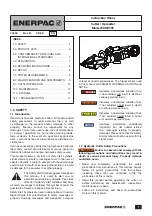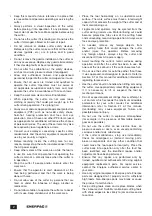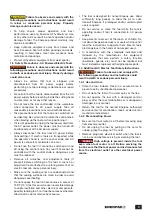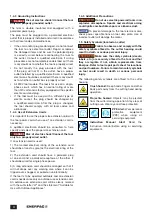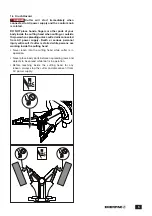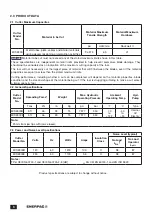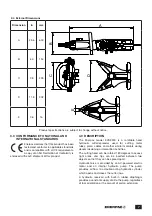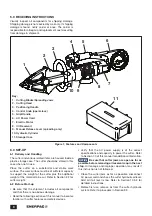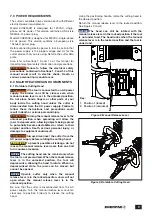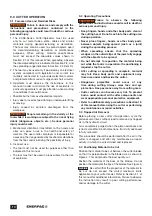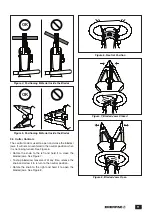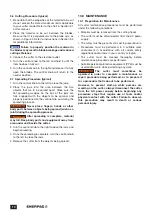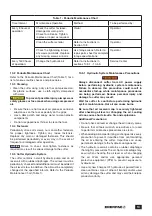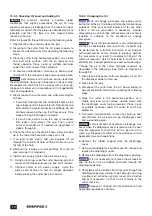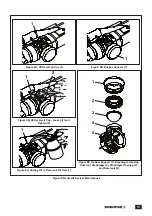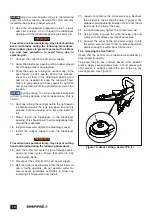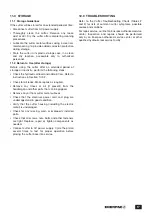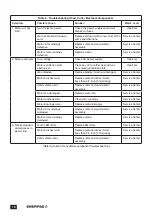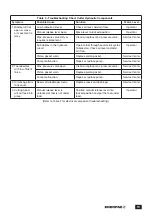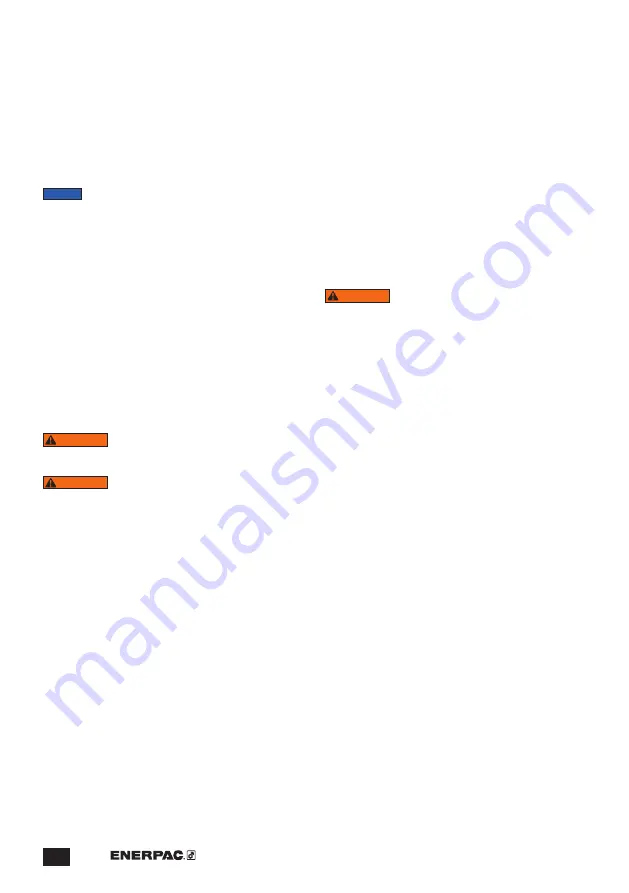
12
9.6 Cutting Procedure (typical)
1. Be certain that the properties of the material to be cut
do not exceed the stated maximum limits applicable
to your cutter model. Refer to the chart in Section 2.1
of this manual.
2. Place the material to be cut between the blades.
Be sure that it is perpendicular to the blade axis, as
shown in Figure 4. Refer to instructions in Section 9.4
for additional information.
NOTICE
Failure to properly position the material in
the blades may result in blade breakage and reduced
cutting efficiency.
3. Connect the cutter to the electrical outlet.
4. Turn the control knob to the left and hold it until the
item has been fully cut.
5. Turn the control knob to the right and release it to fully
open the blades. The control knob will return to the
neutral position.
9.7 Spreading Procedure (typical)
1. Turn the control knob to the left to close the jaws.
2. Place the jaws into the area between the two
objects that are to be spread apart. Make sure the
flat spreading wedges on the tips of the jaws are
fully engaged with the objects to be spread, and
properly positioned so they cannot slip out during the
spreading process.
NOTICE:
WARNING
Never place fingers, hands or other
body parts between objects being spread (such as a
joint) during the spreading process.
NOTICE:
WARNING
After spreading is complete, material
may fall. Keep body parts and equipment away from
area under and beside the cutter.
3. Turn the control knob to the right to open the jaws and
begin spreading.
4. Once the spreading is complete, turn the control knob
to the left to close the jaws.
5. Remove the cutter from the objects being spread.
10.0 MAINTENANCE
10.1 Preparation for Maintenance
All cutter maintenance procedures must be performed
under the following conditions:
• Material must be removed from the cutting head.
• The cutter must be disconnected from the AC power
supply.
• The cutter must be given time to cool to prevent burns.
• Procedures must be performed in a suitable work
environment in accordance with all current safety
regulations and/or laws in your country or region.
• The cutter must be cleaned thoroughly before
maintenance procedures are performed.
• Suitable personal protective equipment (PPE) must be
used and/or worn while performing any work.
NOTICE:
WARNING
The cutter must sometimes be
operated in order to complete a maintenance or
repair procedure being performed, or to prepare it
for a procedure that is about to be performed.
However, to prevent start-up while persons are
working on the cutter, always disconnect the cutter
from the AC power supply before beginning any
procedure steps that require use of tools and/or
physical contact with the cutter. Failure to observe
this precaution may result in death or serious
personal injury.
Summary of Contents for ECSE300
Page 20: ...WWW ENERPAC COM...

